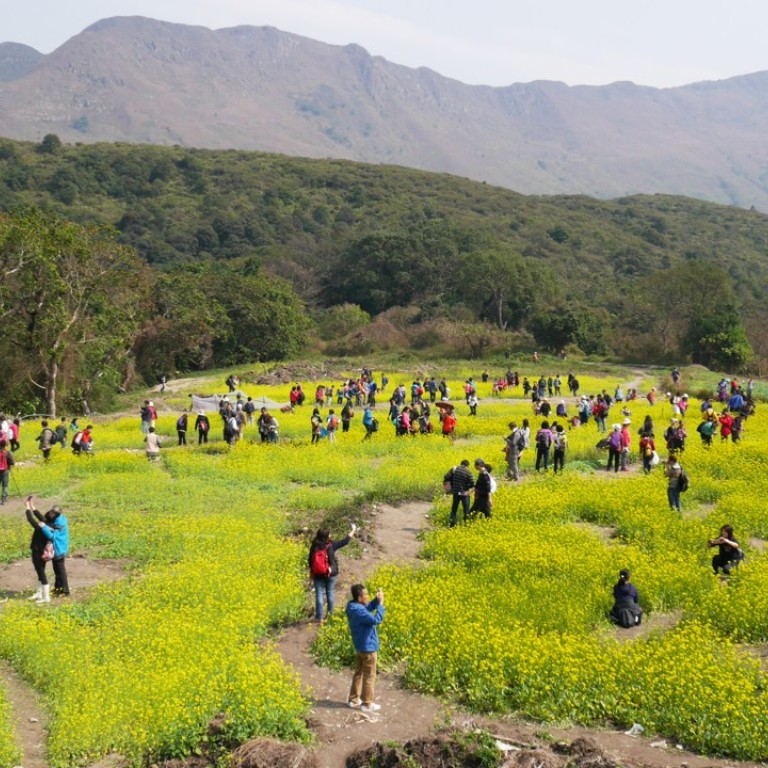
Landmark Hong Kong land swap deal is a win for environmental conservation
Historic agreement will see private developer hand over ecologically rich land in return for rights to build golf course on industrial estate
An unprecedented land swap deal to protect one of Hong Kong’s most ecologically rich enclaves has been approved by the city’s top decision-making body, heralding what could finally be a permanent solution to a decades-old stalemate on how best to protect the area.
The Executive Council on Thursday agreed “in principle” for most of Tai Po’s Sha Lo Tung – almost entirely owned by a private developer – to be surrendered to the government in exchange for a tract of land at the Shuen Wan restored landfill near Tai Po industrial estate, which will be developed into a private golf course.
The proposal was raised by Chief Executive Leung Chun-ying in his January policy address.
Officials however stressed this was a “unique, exceptional and isolated case justified on nature conservation policy grounds” and not likely to be replicated elsewhere.
“Most areas of high ecological value are basically owned by a single landowner, that is why we were able to use this method,” said environment chief Wong Kam-sing.
“In the past, many measures have been attempted to protect it but we think at this point, this option is the most feasible to reach the aim of [long-term] conservation.”

This is the first time that a non-in-situ land exchange has been conducted in Hong Kong on the basis of conservation. With its relatively unpolluted streams, marshes and woodland, the enclave ranks second only to the Mai Po and the Inner Deep Bay Ramsar Site in ecological significance. It is a haven for rare dragonflies.
Under the new plan, Sha Lo Tung will be placed under active management by the Agriculture, Fisheries and Conservation Department, which will in turn engage a non-profit organisation to implement and run the management plan.
As for the Shuen Wan site given to the Sha Lo Tung Development Company, the proposed lease term is 50 years and the land exchange premium will be assessed based on full market value. It will be required to allocate 20 per cent of total tee-time at the proposed golf course for general public use and conduct technical and environmental studies.
Legal scholar Eric Cheung Tat-ming, who represents the company, said the move was “cautiously welcomed” and “a win for all sides”. But he said the company would have to continue discussing the details with the government to ensure the plan was fair and commercially viable.
Dr Cheng Luk-ki of environmental group Green Power – which was involved in at least one public-private partnership proposal for the area – said the government would have to restore some of the physical and ecological damage done to the enclave over the years and to ensure that as government land, it was protected from other forms of disturbance. “The active management part will be very important,” he said.
The company began buying up tracts of land in the enclave in the 1970s and 1980s with plans to build an 18-hole golf course and low-density housing. The plan was shelved in the early 1990s amid fierce opposition from green groups.
Because of the rich biodiversity in the area, large parts were designated as a site of special scientific interest (SSSI) in 1997, effectively barring any construction or farming. By 2004, Sha Lo Tung became one of 12 priority sites for enhanced protection under the government’s “New Nature Conservation Policy”.
New plans for public-private partnership scheme to develop a 50- hectare conservation area and columbarium complex never came to fruition.

